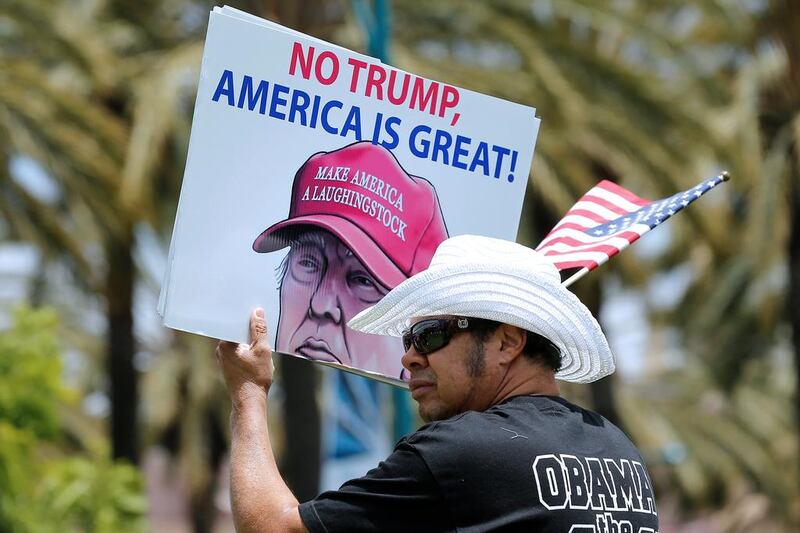There is no doubt that coming out of the rancorous primary battles through which the US selects its two presidential candidates to contest the general election, the dominant narratives have been populist slogans about all that is wrong with the Republic.
The hollowing out of the middle class is a challenge that must be tackled with much greater intent, but if America does elect its first female president eight years after electing Barack Hussein Obama, this could once again truly refresh American democracy as the beacon on the hill and bolster an emerging global emancipation of women.
It won’t hurt that under the watch of Mr Obama, the economy has added more than 9 million jobs and the jobless rate has dropped to below the historical median.
That compares with nearly 23 million added during fellow Democrat Bill Clinton’s years and fewer than 1.3 million added during Republican George W Bush’s two terms.
__________
Tour de Route 66
■ Stars aligning for Trump with Americans exhausted from credit crunch
■ America's labour no longer content with business as usual political platitudes
_________
After driving across America for three weeks from New York to Wyoming, I suspect that there are many who believe the country never stopped being great. And the economic stats appear to support the narrative. The recent low inflation has helped the buying power of weekly pay cheques. Earnings for all workers, adjusted for inflation and seasonal factors, was 3.4 per cent higher in November than it was when Obama took office in 2009. The number of long-term unemployed had dropped to less than 2.1 million by December.
That said, if I had a dollar for every time I heard the phrase: “I would love to vote for a woman president, I just wish it was someone other than Hillary”, I might be rich enough to join the holiday-home jet set in Jackson Hole, Wyoming.
Rather than banking on enthusiasm for a historic leap in gender equality, Hillary may simply find a path to victory echoing her husband’s famously effective campaign formula for the 90s: “It’s the Economy Stupid”.
Sean Evers is managing partner at Gulf Intelligence.
Sean Evers’ agenda:
He is on the Tour de Route 66 in the United States. He is on the road across America to get the pulse of the US in this noisy election year and to garner insights on what it all could mean for the Middle East – from economy in New York City, to geopolitics in DC, to the Blue Ridge Mountains of Virginia and even driving through the Dakotas to get first-hand the health of shale oil frackers. Follow the tour on Twitter @sean_evers #giroute66
Sean Evers’s Bio:
He is an energy industry specialist with more than two decades of experience in the global oil and gas markets. Evers is founder and managing partner of Gulf Intelligence, a strategic communications consultancy and energy think tank based in the Middle East. His journey in the oil markets began in mid 1990s as the Financial Times Cairo correspondent. In 1997, Evers helped to open up Bloomberg in the Middle East where he spent the following decade as bureau chief from Cairo to Tehran, culminating in 2008 in Dubai being designated as the company’s fourth global hub. He attained a BA in politics & economics from the University of Notre Dame in Indiana in 1988, and went on to secure his LLB law degree at the National University of Ireland, Galway.
business@thenational.ae
Follow The National's Business section on Twitter





